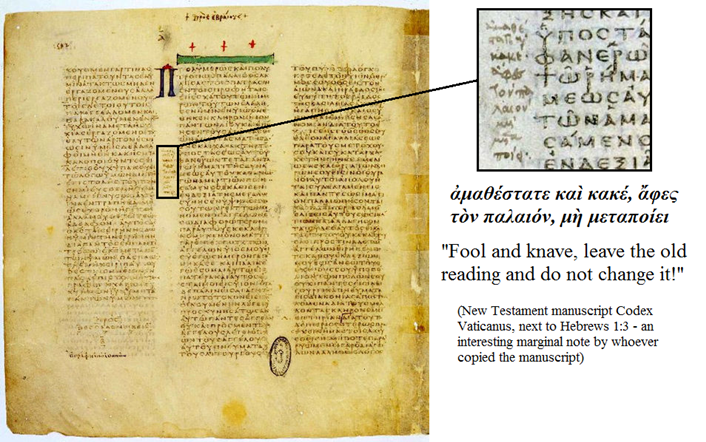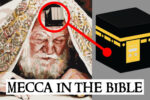Jesus (peace be upon him) in Islam.
Jesus, known as Isa in Arabic, is a pivotal figure as the bridge between all three Abrahamic faiths. He is also possibly the most misunderstood, and misrepresented, person in history. It is for these reasons that the Qur’an highlights the most important aspects of his life in order to correct mankind about many of the mistaken beliefs and innovations that developed in the centuries following him.
Muslims respect and love Jesus as a great prophet of God. It may surprise Christian readers to note that Jesus is mentioned more times by name in the Qur’an than Prophet Muhammad, peace be upon them both, and there are even details mentioned about him and his mother Mary that are not found in the New Testament. In this blog post we will examine some of the truths which God revealed about Jesus in the Qur’an.
THE STORY OF MARY
The Qur’an informs us that Mary’s mother, the wife of Imran, made a sincere and heartfelt supplication to God, vowing that her unborn offspring would serve in God’s House in Jerusalem. She dedicated her unborn child to the service of God, who is called Allah in Arabic:
[Mention, O Muhammad], when the wife of Imran said, “My Lord, indeed I have pledged to You what is in my womb, consecrated [for Your service], so accept this from me. Indeed, You are the Hearing, the Knowing.” [Chapter 3, verse 35]
In due time, she gave birth to a girl, and named her Mary:
But when she delivered her, she said, “My Lord, I have delivered a female.” And Allah was most knowing of what she delivered, “And the male is not like the female. And I have named her Mary, and I seek refuge for her in You and [for] her descendants from Satan, the expelled [from the mercy of Allah].” [Chapter 3, verse 36]
When the time came for Mary to go into the House of Prayer, God put her under the care of Prophet Zechariah. Mary was a very devout worshipper of God, and whenever Prophet Zechariah entered her quarters he was surprised to see that God had blessed her with provision:
So her Lord accepted her with good acceptance and caused her to grow in a good manner and put her in the care of Zechariah. Every time Zechariah entered upon her in the prayer chamber, he found with her provision. He said, “O Mary, from where is this [coming] to you?” She said, “It is from Allah . Indeed, Allah provides for whom He wills without account.” [Chapter 3, verse 37]
Readers may be interested to learn that there is an entire chapter in the Qur’an, called Surah Maryam, which is named after Mary. Moreover Prophet Muhammad taught that Mary is one of the greatest women that ever lived, as recorded by his companions:
“I heard the Prophet of God saying Mary, the daughter of Imran was the best among women.” [Saheeh Al-Bukhari]
As we have seen, Mary’s devotion to God was unparalleled, but her faith was about to be severely tested.
THE BIRTH OF JESUS
God informs us in the Qur’an that one day Mary was given glad tidings by an angel of a special son she would give birth to, called Jesus:
[And mention] when the angels said, “O Mary, indeed Allah gives you good tidings of a word from Him, whose name will be the Messiah, Jesus, the son of Mary – distinguished in this world and the Hereafter and among those brought near [to Allah]. [Chapter 3, verse 45]
This child would perform miracles from the cradle and would be a prophet of God. Mary responds to the angel that she is a chaste lady whom no man had ever touched:
He will speak to the people in the cradle and in maturity and will be of the righteous. She said, “My Lord, how will I have a child when no man has touched me?” [The angel] said, “Such is Allah; He creates what He wills. When He decrees a matter, He only says to it, ‘Be,’ and it is. And He will teach him writing and wisdom and the Torah and the Gospel. [Chapter 3, verses 46-48]
Later when she became pregnant with Jesus she withdrew herself from her people out of shame. She knew they would not believe her miraculous story and would slander her and accuse her of having committed fornication:
So she conceived him, and she withdrew with him to a remote place. [Chapter 19, verse 22]
When she went into labour she was in great pain and utter despair. Then God, out of His mercy, provided her with sustenance:
And the pains of childbirth drove her to the trunk of a palm tree. She said, “Oh, I wish I had died before this and was in oblivion, forgotten.” But he called her from below her, “Do not grieve; your Lord has provided beneath you a stream. And shake toward you the trunk of the palm tree; it will drop upon you ripe, fresh dates. [Chapter 19, verses 23-25]
God informed her that when she returns to her people, she should not speak a word to them:
So eat and drink and be contented. And if you see from among humanity anyone, say, ‘Indeed, I have vowed to the Most Merciful abstention, so I will not speak today to [any] man.'” [Chapter 19, verse 26]
She returned to her people, who confirmed her earlier fears by implying she had committed fornication. This was a serious accusation as in Jewish Law the punishment would be stoning to death:
Then she brought him to her people, carrying him. They said, “O Mary, you have certainly done a thing unprecedented. O sister of Aaron, your father was not a man of evil, nor was your mother unchaste.” [Chapter 19, verses 27-28]
Honouring God’s instructions to remain silent, she pointed to her child Jesus who proceeded to defend his mother and proclaim his Prophethood:
So she pointed to him. They said, “How can we speak to one who is in the cradle a child?” [Jesus] said, “Indeed, I am the servant of Allah. He has given me the Scripture and made me a prophet. And He has made me blessed wherever I am and has enjoined upon me prayer and charity as long as I remain alive And [made me] dutiful to my mother, and He has not made me a wretched tyrant. And peace is on me the day I was born and the day I will die and the day I am raised alive.” [Chapter 19, verses 29-33]
It’s no surprise that as the Gospels were written in the decades after Jesus, some people upon hearing of these miraculous feats came to be confused about his nature and attributed divinity to him. As we will see in the next section, the Qur’an addresses this issue in great detail.
THE NATURE OF JESUS
For the three Abrahamic faiths this is the most contentious issue about Jesus. Was he just a Messiah imposter as seen by Jews? Or perhaps a divine Son of God as seen by Christians? The Islamic view of Jesus lies between these two extremes. The Qur’an clarifies for mankind that Jesus as the Messiah was a prophet in a long line of prophets:
The Messiah, son of Mary, was not but a messenger; [other] messengers have passed on before him. And his mother was a supporter of truth. They both used to eat food. Look how We make clear to them the signs; then look how they are deluded. [Chapter 5, verse 75]
Notice how God Almighty refers to Jesus as “son of Mary”. This phrase is repeated throughout the Qur’an and reinforces the idea that he is a very human prophet of God. Jesus is not the begotten Son of God nor is he God incarnate:
O People of the Scripture, do not commit excess in your religion or say about Allah except the truth. The Messiah, Jesus, the son of Mary, was but a messenger of Allah and His word which He directed to Mary and a soul [created at a command] from Him. So believe in Allah and His messengers. And do not say, “Three”; desist – it is better for you. Indeed, Allah is but one God. Exalted is He above having a son. To Him belongs whatever is in the heavens and whatever is on the earth. And sufficient is Allah as Disposer of affairs. [Chapter 4, verse 171]
Here God Almighty explains to mankind that one of the main reasons for being led to believe that Jesus is divine, his miraculous birth, is in reality not a reason to attribute divinity to him at all. His likeness is that of Adam, just as Jesus was created without a father, so too was Adam created without a father or a mother:
The similitude of Jesus before Allah is as that of Adam; He created him from dust, then said to him: “Be”. And he was. [Qur’an chapter 3, verse 59]
God Almighty sternly warns mankind that attributing divinity to Jesus is blasphemy of the worst kind:
And they say, “The Most Merciful has taken [for Himself] a son.” You have done an atrocious thing. The heavens almost rupture therefrom and the earth splits open and the mountains collapse in devastation That they attribute to the Most Merciful a son. And it is not appropriate for the Most Merciful that He should take a son. There is no one in the heavens and earth but that he comes to the Most Merciful as a servant. [Chapter 19, verse 88-93]
They have certainly disbelieved who say,” Allah is the Messiah, the son of Mary” while the Messiah has said, “O Children of Israel, worship Allah, my Lord and your Lord.” Indeed, he who associates others with Allah – Allah has forbidden him Paradise, and his refuge is the Fire. And there are not for the wrongdoers any helpers. [Chapter 5, verse 72]
The reader may be interested to note that there is a remarkable convergence of modern mainstream Biblical scholarship with what the Qur’an says about Jesus. Scholars say that the historical Jesus did not think of himself as God but rather a Jewish prophet and a human Messiah sent by God.
It may seem very strange that the Qur’an is opposing what the Church has taught about the nature of Jesus for over a thousand years. You may ask, how can the Qur’an which came 600 years after Jesus, be correct about him? The response would be, and this may be a very sobering point, that there is a unanimous consensus amongst over 1.5 billion Muslims in the world that Jesus is a human prophet of God, whereas Christians amongst themselves don’t have a similar degree of agreement about Jesus. Indeed the differing views about the nature of Jesus in the early Christian Church have divided it to this very day.
THE MIRACLES OF JESUS
Miracles serve a purpose, they are a proof of prophethood:
And We gave Jesus, the son of Mary, clear proofs and supported him with the Holy Spirit. [Chapter 2, verse 87]
God granted Jesus the ability to perform many different types of miracle:
And [make him] a messenger to the Children of Israel, [who will say], ‘Indeed I have come to you with a sign from your Lord in that I design for you from clay [that which is] like the form of a bird, then I breathe into it and it becomes a bird by permission of Allah. And I cure the blind and the leper, and I give life to the dead – by permission of Allah. And I inform you of what you eat and what you store in your houses. Indeed in that is a sign for you, if you are believers. [Chapter 3, verse 49]
We should not equate the miracles that Jesus performed with divinity, as many other prophets performed miracles, for example Moses who split the sea. The prophets of God were granted miracles for a very specific reason, they served the purpose of aiding and assisting the prophets of God to fulfil their duties. Who then, was Jesus sent to? What task did God assign him?
THE MISSION OF JESUS
The Qur’an makes it clear that Jesus was sent to the Children of Israel to call them back to obeying the laws of God and also re-affirm the Torah:
And [I have come] confirming what was before me of the Torah and to make lawful for you some of what was forbidden to you. And I have come to you with a sign from your Lord, so fear Allah and obey me. Indeed, Allah is my Lord and your Lord, so worship Him. That is the straight path. [Chapter 3, verses 50-51]
He also paved the way for the coming of Prophet Muhammad:
And [mention] when Jesus, the son of Mary, said, “O children of Israel, indeed I am the messenger of Allah to you confirming what came before me of the Torah and bringing good tidings of a messenger to come after me, whose name is Ahmad [one of Muhammad’s names].” But when he came to them with clear evidences, they said, “This is obvious magic.” [Chapter 61, verse 6]
The responsibility to deliver the message that God alone should be worshipped without partners was given to Jesus as it was given to other prophets like Moses and Muhammad. God Almighty informs us in the Qur’an that He made a covenant with all the prophets to fulfil this duty:
And [mention, O Muhammad], when We took from the prophets their covenant and from you and from Noah and Abraham and Moses and Jesus, the son of Mary; and We took from them a solemn covenant. [Chapter 33, verse 7]
How successful was Jesus in his mission? In spite of being granted many wondrous miracles, and in spite of being righteous and calling to righteousness, how did his people react to him?
DEALING WITH THE CHILDREN OF ISRAEL
Not all of his people believed:
O you who have believed, be supporters of Allah, as when Jesus, the son of Mary, said to the disciples, “Who are my supporters for Allah?” The disciples said, “We are supporters of Allah.” And a faction of the Children of Israel believed and a faction disbelieved. So We supported those who believed against their enemy, and they became dominant. [Chapter 61, verse 14]
Some of the Israelites transgressed so much that they were cursed by Jesus and other prophets:
Cursed were those who disbelieved among the Children of Israel by the tongue of David and of Jesus, the son of Mary. That was because they disobeyed and [habitually] transgressed. [Chapter 5, verse 78]
His people were so evil that they even tried to kill him, in spite of the clear signs he showed them:
[The Day] when Allah will say, “O Jesus, Son of Mary, remember My favour upon you and upon your mother when I supported you with the Holy Spirit… and when I restrained the Children of Israel from [killing] you when you came to them with clear proofs and those who disbelieved among them said, “This is not but obvious magic.” [Chapter 5, verse 110]
Christians believe that the enemies of Jesus eventually succeeded in killing him. What does the Qur’an have to say about this?
THE ATTEMPTED CRUCIFIXION
The Qur’an denies the claim that Jesus came to this earth with the purpose of being sacrificed. God Almighty makes it very clear that Jesus was not crucified, nor was he killed:
And [for] their saying, “Indeed, we have killed the Messiah, Jesus, the son of Mary, the messenger of Allah.” And they did not kill him, nor did they crucify him; but it appeared so unto them. And indeed, those who differ over it are in doubt about it. They have no knowledge of it except the following of assumption. And they did not kill him, for certain. Rather, Allah raised him to Himself. And ever is Allah Exalted in Might and Wise. [Chapter 4, verses 157-158]
At first glance it appears that the Qur’an contradicts what has been recorded in the Gospels about the Crucifixion. This is not necessarily the case however, as God stated in the Qur’an that “it appeared so unto them“, meaning that it was made to appear like Jesus was crucified, when in reality he wasn’t.
When we factor in what we know historically about the late composition of the Gospels, according to modern mainstream Biblical scholarship, then it’s perfectly possible that the authors of the Gospels, who never met Jesus and were in fact writing many decades after him, composed their writings based on rumours and conjecture. So it is possible to reconcile the Qur’anic account with the Gospels from a historical perspective.
So if Jesus wasn’t crucified, what happened to him? God saved him from this fate by raising him up in safety:
And I was a witness over them as long as I was among them; but when You took me up, You were the Observer over them, and You are, over all things, Witness. [Chapter 5, verse 117]
As we will see in the next section, God Almighty has a very important role in mind for Jesus to fulfil.
HIS RETURN TO EARTH AND ROLE IN THE END TIMES
Muslims also believe in the return of Jesus to earth. The Qur’an informs us that Jesus will return to mankind as a major sign that the Day of Judgement is near:
And indeed, Jesus will be [a sign for] knowledge of the Hour, so be not in doubt of it, and follow Me. This is a straight path. [Chapter 43, verse 61]
Jesus will also fight the Anti-Christ, as taught by Prophet Muhammad:
“It [the Day of Judgement] will not come until you see ten signs: the smoke, the Anti-Christ, the Beast, the rising of the Sun from the west, the descent of Jesus son of Mary…” [Sahih Muslim]
Christians and Muslims both believe that Jesus will descend in the sky. It’s only Islam that reveals the exact location of his descent. Prophet Muhammad taught that Jesus will descend at Damascus in a truly majestic fashion:
“At this very time Allah would send Christ, son of Mary, and he will descend at the white minaret in the eastern side of Damascus wearing two garments lightly dyed with saffron and placing his hands on the wings of two Angels. When he would lower his head, there would fall beads of perspiration from his head, and when he would raise it up, beads like pearls would scatter from it.” [Sahih Muslim]
We are also informed that Jesus will fight and eventually kill the Anti-Christ:
“…Jesus will say, “Open the gate;” so the gate will be opened. Outside, there will be the Anti-Christ, along with 70,000 of the armed Jews. As soon as the Anti-Christ sees Jesus (upon whom be peace), he will start dissolving like salt in water, and will flee. Jesus will say, “I shall strike you a blow which will not allow you survive.” And he [Jesus] will overtake him (Anti-Christ) at the eastern gate of Lud… [Ibn Majah].
Jesus will finally rule the world as a Muslim:
“By the one whose hands my life is in, surely the Son of Mary will descend amongst you as a just ruler…” [Sahih Bukhari]
“How will you be when the son of Mary descends amongst you and he will judge people by the Law of the Qur’an?” [Sahih Bukhari]
Since Jesus is a human being he will marry, have a family and eventually die:
“After his descension on earth, Jesus will marry. He will have children, and he will remain on the earth 19 years after marriage. He will pass away and Muslims will perform his Funeral Prayer and bury him next to the Prophet Muhammad.” [Tirmidhi]
CONCLUSION
Jesus, born of the Virgin Mary, performed many miracles and was sent to the Israelites to call them back to obeying the laws of the Torah as revealed by Prophet Moses. He was not God, nor was he the ‘Son of God’, but in fact was the Messiah, an illustrious prophet of God. Jesus did not invite people to worship himself; rather, he called them to worship God, whom he himself worshipped. Before his departure, he informed his followers of the last prophet, Muhammad, who would come after him, and instructed them to observe his teachings.
Christian readers are politely asked to ponder the following question. Why is it that the Qur’an devotes so many verses to Jesus and his mother Mary? Why are they both mentioned in such a noble light? The answer, of course, is that the same God that gave revelation to Jesus also gave revelation to Muhammad, peace be upon them both.
Finally, for those Christians that still believe that Jesus is a divine being; I request that you reflect on the following verses of the Qur’an. Here God Almighty reveals to us a conversation that will take place between Him and Jesus on the Day of Judgement, when Jesus will utterly reject all divinity ascribed to him:
And [beware the Day] when Allah will say, “O Jesus, Son of Mary, did you say to the people, ‘Take me and my mother as deities besides Allah?'” He [Jesus] will say, “Exalted are You! It was not for me to say that to which I have no right. If I had said it, You would have known it. You know what is within myself, and I do not know what is within Yourself. Indeed, it is You who is Knower of the unseen. I said not to them except what You commanded me – to worship Allah, my Lord and your Lord. And I was a witness over them as long as I was among them; but when You took me up, You were the Observer over them, and You are, over all things, Witness. [Chapter 5, verses 116-117]
Further Reading
To learn more about Jesus from both the Islamic and Christian perspective, please download your free copy of the book “Jesus: Man, Messenger, Messiah” from the Iera website (click on image below):











9 Comments
New American Standard Bible
“Is not this the carpenter, the son of Mary, and brother of James and Joses and Judas and Simon? Are not His sisters here with us?” And they took offense at Him.(Mark 6:3)
I always thought it was interesting that Jesus is called “Son of Mary” is this verse.
Actually, in Mark not only do Jesus and his kin worry that their sibling is not alright, but later in Mark when Jesus returns to his home town Nazareth where some of his sisters are still living, he is “without honor” there, and “can do no miracles except heal a few people” per Mark. Fits.
The question should be, do inerrantists have a good response to the fact that multiple stories found only in Mark never appear in either Matthew or Luke who used Mark. You should study the bits of Mark that both Matthew and Luke failed to include in their Gospels. They seem like obvious sections one would delete if one wanted to produce an ever more grand depiction of Jesus.
This one is interesting. John is the only writer who has the Roman soldiers who arrest Jesus fall down and worship him after he utters “I am” (John 18:6). This highly significant detail is not mentioned anywhere else.
Assalamu alaikum, one thing confuses me.
Is Mary really the wife of Imran? Can you please give me a quote from the Quran on this? Thank you, jazakallah khair.
Wa alaykum as-salaam Imran,
I think you misunderstood the verse, it says the wife of Imran became pregnant with a child (Mary), not that Mary is Imran’s wife.
Best Regards.
Assalamualaikum WRB
I have always been wanting to find out who is Mary Magdalene in Islamic context. Was she Rabiatul Ardawiah?
Wa ‘alaykum as-salaam wrwb,
I’m not aware of Mary Magdalene being mentioned in any Islamic sources.
What was the purpose of Jesus being born by God without a man in the Quran and no other prophet was (besides Adam)?
In the Bible we know the reason was because Jesus is the second Adam. He came to uphold God’s Laws perfectly, without sin, which the first Adam failed to do. Because of Adams sin we were cursed to die. Now, because of Jesus righteousness, we are blessed with eternal life.
Also, the Quran paints Jesus very highly. More so (it would seem) than Mohammad himself. It states:
Jesus is
1) a Word from God (Surah 3:45)
2) the Messiah (Surah 3:45)
3) one of those closest to God (Surah 3:45)
4) a Spirit from Him (God) (Surah 4:171)
Also, what about the fact that the Quran states in Surah 3:55:
“…I will exalt those who follow you (Jesus) above those who disbelieve, till the day of resurrection…”
It would seem that Jesus disciples (who would by the Quran standards be Muslim) in His day would be exalted above those who disbelieve. When, in fact, there is no historical fact that there were any Muslims in Jesus day until Muhammad came.